
For the past few years, I’ve been a landlord of a few rental properties from a high-rise condo unit to a low-rise pre-construction home to a fixer upper resale home. However, I’ve never owned a multi-residential building before – that’s a totally different beast (I’ll love to have enough money to own it some day). I’ve experienced the highs of doing very little to manage my rental properties and collecting the awesome monthly rent cheques. On the other hand, I’ve also gone through the lows of dealing with terrible tenant issues at very inconvenient times and fixing things that my tenants broke. In this post, I will share my beginner’s guide to owning rental properties through my experience of owning/managing multiple rental properties.
Cash Flow Projection
Different people have different goals when they invest in rental properties. Being a landlord, my goals are simple. I want to make money in the long run, own rental properties that can provide me with a stable income and do not require any additional funds after the initial investment. Before I purchase my rental properties, I do an estimate cash flow projection for the first year to ensure that my cash flow goal is met. Depending on your financial situation, being able to purchase rental properties that provide you with positive cash flows will give you a great deal of financial flexibility.
Purchasing The Right Rental Properties
When it comes to investing in rental properties, it’s important to purchase properties that fit your investment budget. Ideally, the rental properties should be within an hour drive from your own residence as it makes managing your properties easier. The properties should be located near public transit to maximize your target custom base when you rent it out and capital appreciation when you sell it. Check out my “how to buy an investment property: step-by-step” post for a walk through of the rental properties purchasing process.
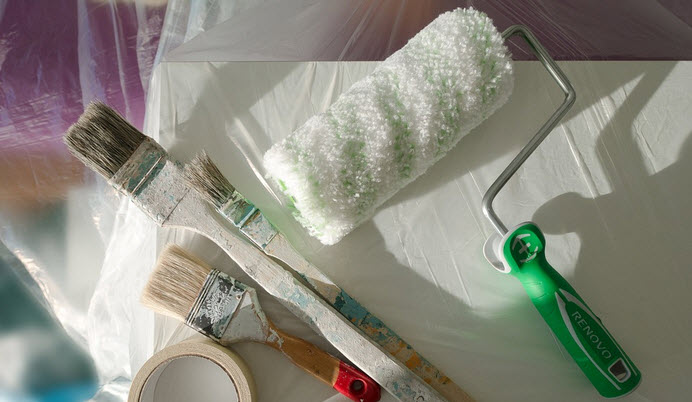
Fix All Issues Before Renting Out your properties
Time is money. When you save time, you save money. In no other place is this saying truer than in rental properties. If you fix all the issues before renting out your rental properties, you’ll get fewer service calls. There will be a lower chance that you’ll have to fix any major issue that started out as a minor issue that you didn’t want to fix previously. With minimal issues, your tenants have no excuse not to pay you rent. You can also upsell your rental properties to potential tenants as higher quality and well-managed properties comparing to what’s available in your target market.
Know Your Local Landlord Tenant Act
To protect your investment, you need to arm yourself with knowledge of your local by-laws. You need to have general knowledge of the Landlord Tenant Act. Since I live in the province of Ontario, it’s called the Residential Tenancies Act. With general knowledge, I know what my rights and responsibilities are and what my tenants’ rights and responsibilities are. When it comes to dealing with problematic tenants, I will use this knowledge to ensure that I limit my legal liabilities. On the other hand, I can also use the legal framework to exert my legal authority as a landlord to protect my rental properties.
Tenants Search
With the help of the Internet, looking for potential tenants is easy and very cost effective. Personally, I’ve never paid any service fees when I am searching for tenants. I personally use the real estate section of the Kijiji.ca website to advertise my rental properties for free. Facebook rental groups in your local area and Craiglist.ca can also be used for free too. If you really need to, you can hire a Realtor to assist you by listing your property for rent on Realtor.ca.
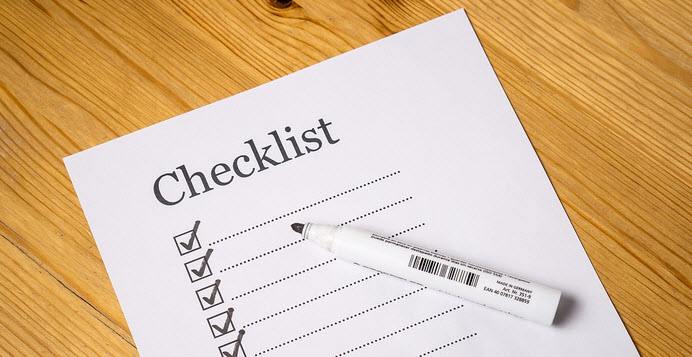
Tenant Screening Process
If you plan to own rental properties for the long run, you need to set up a tenant screening process. This process will help you mitigate the risk of renting to professional tenants that I mentioned in another post. The more checks you do, the harder it is for the professional tenants to take advantage of your rental properties. You can use either Equifax or TransUnion to obtain a credit report on the potential tenants. Ask for previous landlord reference letters, employment letters, a government issued identification and any documentations that you can legally request. The more due diligence you do on the potential tenants, the lower the chance that you’ll rent your property to professional tenants.
Tenant Communication
To ensure that I have a paper trail of all my communications with my tenants, I set up an email account specifically for that purpose and I let me tenants know that I check that email on a daily basis and will respond to any emails within 48 hours. If they need to contact me urgently, they can either call me or my partner. It’s also important to have the emails and contact info of all parties written in the lease. When it come disputes or conflicts, you’ve got evidence and written documentation to support your arguments.
Dummy Proof Your Property
The more you do to dummy proof your property, the fewer issues and service calls that you’ll get from tenants. It’s not that often that you rent to bad tenants, but you will get a bad tenant from time to time. When you do, it’s not that easy for you to get rid of them when the lease term hasn’t ended or they are still paying rent. The way around it is to dummy proof the property so that it’s less likely to suffer irreparable damage from bad tenants. A preventative measure is less costly than replacement renovation.

Communicate Your Expectations
Before signing the lease with a tenant, I clearly communicate my responsibilities and the tenants’ responsibilities to ensure that we are on the same page regarding my policy on rent, maintenance and service calls. It’s also important to set the expectations for my tenants that their responsibilities are to pay rent on time and to use the utilities and appliances in a responsible manner. I will conduct my business by the books to protect my investment such as providing them with written notice if they don’t pay rent on time. By communicating your expectation at the beginning it minimizes any potential future conflicts and misunderstandings.
Never Provide The Keys Before Receiving A Deposit
If you have not been familiarized with the term professional tenants yet, I’d recommend all current and future landlord gets familiarized with this term. Professional tenants know the loopholes of the law and use it to take advantage of unsuspecting landlords. I recently read a story about this well-coiffed, professional tenant who was able to con his landlord to provide him with the keys to the property and had not paid his landlord a single dime of rent. Hence, I will never provide the keys to my castle before the tenant provides the cash.
Property Maintenance Responsibilities
It’s important to clearly document certain responsibilities such as mowing the lawn, shoveling the snow and disposing of trash around the property. My property got fined by the city for putting the trash bins a bit too far beyond the curb and it was about $500. That was a costly and unnecessary expense. In addition, if you don’t mow the lawn, the city can also fine you. To ensure that you don’t incur any unnecessary expense, make sure that your document the property maintenance responsibilities clearly in the lease.

Whether To Hire A Property Management Company
Depending on if you are a hands on or hands off landlord, sometimes hiring a property management company to assist you may make sense. To ensure that I have control of screening the tenants and to keep more of my rental revenue, I decided to be a hands-on landlord. However, if you just want to invest and do not want to deal with tenants, outsourcing to a property management will lighten your workload. The service fees that you paid will be used to offset your rental revenue and pay less income tax.
Invest With A Partner
As I’ve covered in “the benefit of investing with a partner” post, having a partner to work with you to manage your rental property is crucial. You’ll have more resources to do the administrative work and handling service calls. The complimentary skills of the partners allow you to divide work based on expertise. Most important of all, having a partner means more financial power and flexibility. It also lowers the financial and cash flow risk for both partners.
Bills Management
Depending on if you are paying the bills or your tenants are paying the bills. If the tenants are paying the bills, make sure that you have the bills transferred to the tenants’ names. If they missed paying a bill or not paying a bill at all, it’s their credit that they are affecting, not yours. On the other hand, if you are paying the bills, make sure that you keep the receipts so that you can claim those as expenses to lower your annual rental income taxes.
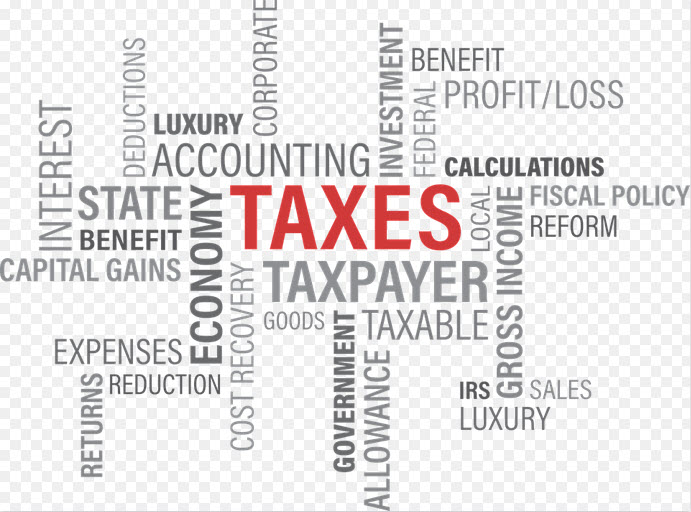
Rental Income Tax
When it comes to taxation, rental incomes doesn’t get any tax incentives. All rental incomes will be treated as regular income and taxed at your highest tax bracket. To ensure that I minimize my income tax bill, I borrow both the down-payment and mortgage (I can discuss this in another post) so the interest that I paid will be used to offset my rental revenue. In addition, I offer to include furniture and appliances to tenants. I also get to write off a percentage of the furniture and appliances cost as depreciation. Lastly, the spouse with lower income owns a higher percentage of the property so that more of the rental income will be taxed at a lower rate.
Keep All Your Receipts
Any expenditure related to the rental property such as hiring a contractor to fix plumbing issues or utility bills or property tax bills can be used to lower your rental income. To ensure that you keep more of your money, keep all receipt for income tax reporting and documentation purposes. If you ever get audited, with supporting documents, you can comfortably justify your expenses easily.
Provide Depreciable Equipment and Furniture
As I’ve mentioned in another section earlier, providing furniture to tenants can provide more benefits in addition to just lowering your rental revenue. You can charge a higher rental rate if furniture is provided. You may have a competitive advantage over your competitors when it comes to tenants that don’t want to spend money to purchase furniture. Depending on how you structure your lease, you can ask for an additional deposit for the furniture.
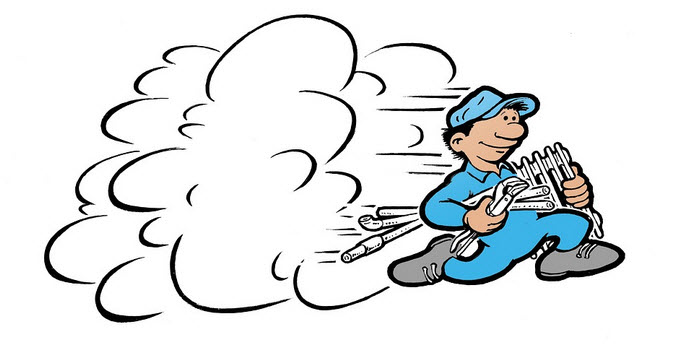
Service Contractor List
I cannot stress enough about the importance of having a list of servicing contractors’ contact handy. I had the furnace of my rental property broke down in the dead of mid-winter. Some Tenants broke a pipe in the kitchen during a long weekend. Another tenant broke a toilet and called me at midnight. So having contacts to service companies not only save your money, it can also save your rental property from ruin if an urgent issue is not being dealt with in a timely manner.
Do Regular Maintenance Checks
Before I sign the lease, I often communicate to my tenants that I will be conducting maintenance checks on my property once every quarter of the year. I will give them the proper notice of at least a minimum of 24 hours before conducting my regular maintenance checks. By conducting the regular maintenance check, I accomplish a few goals. First, I am ensuring that all the major appliances are working accordingly. Secondly, I can fix any issues to prevent them from getting worst. Third, I am able to assess the quality of the current tenant. Last, but not least, I am communicating to my tenants that I am a responsible landlord and will keep my rental property in tip top shape.

Provide Incentives
When it comes to making a profit in my rental property, I am content when I reach a certain amount of positive cash flow. I tend to provide incentives to good tenants to encourage them to extend their leases so I spend less time finding new tenants. One option is to implement a rent freeze for returning tenants. I may also invest in better appliances and not charge my current tenants extra.
Upgrade To High Efficiency Appliances
Depending on if you are paying the utility bill or not, you may way want to upgrade your property with high-efficiency appliances and fixtures. Since I rent my properties out inclusive of everything, I upgrade all my light fixtures and appliances to high efficiency so I’ll get fewer service calls due to the high quality of the appliances. I also save money on my utility bills and it’s better for the environment.
Do Not Become Emotionally Attached To Your Property
I am a perfectionist and I want all my properties to show well and attract potential tenants easily. So when I prepare my property for rent, I put a lot of detail and effort to make it presentable. However, once the tenants move it, they don’t value your property the way you do. They will scratch the walls, leave unconsumed food out for days or even weeks. I was quite emotionally attached to the properties and was bothered by some tenants’ irresponsible usage of the property and it creates a bit of unnecessary stress for me. For my own health and happiness, I decided to become emotionally detached from the rental properties and just treat it as a business.
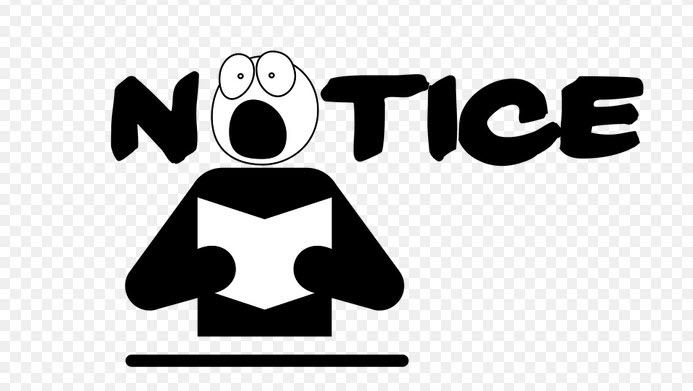
Tenant Eviction
It doesn’t matter how great your current tenants are or how great their reference was, sometimes, dream tenants can become a nightmare tenants when a tenant and landlord relationship breakdown (I’ve experienced it before and it’s not fun at all). The breakdown of the relationship can be for a variety of reasons, but your goal is to minimize the financial impact of this relationship breakdown. In another word, cut your losses. Hence, it’s critical for any landlord to have a thorough knowledge of the tenant eviction process. Arm yourself with this knowledge and check out LegalLine.ca‘s how to evict a tenant article.
Create A Rental Policy
When I first started my rental business, I didn’t have any policy in place and I had to learn a few lessons the hard way. After that, I decided that I will operate my business by the books, meaning I will provide written notice if tenants are late with rent. This will protect my investment against professional tenants and minimize the risk of non-rent payments for a prolonged period of time. I will also maintain my distance from my tenants as I have experienced tenants taking advantage of my easy going nature.
Build A Reserve Fund
I personally don’t believe in keeping reserve funds. I believed in having access to funds. However, this is a rental property and I am at the mercy of tenants that I have no control over their actions. In this case, the risk manager in me forces me to build a reserve fund to minimize the negative impact of my rental properties on my personal finance. Having a reserve fund will allow me to pay for emergency renovations or a sudden breakdown of appliances or keep my rental property operation even if I am facing unplanned financial costs. Depending on your comfort level, my reserve fund ranges from $5,000 to $10,000.
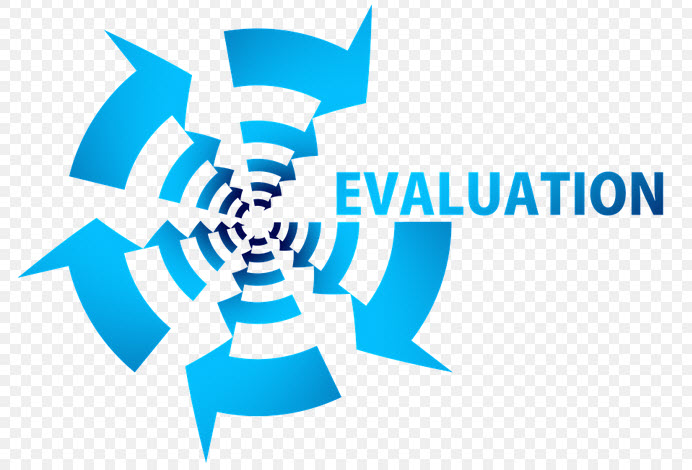
Re-evaluate Your Property
From time to time, you may want to re-evaluate your rental property. You may need to decide if the property is still a good investment or if the amount of time that you spent on maintaining/managing the rental property is still inlined with your lifestyle. The assessment will also allow you to analyze the profitability and the actual cash flow of the property comparing to your original projection before you purchase the rental property. I’ve sold a couple of rental properties that did not meet my cash flow needs and re-invested the proceeds in more suitable properties.

If you like this post, do it to Pinterest or follow me on Pinterest
My Two Cents
Being a landlord is not easy and it requires a lot of hard work. This type of investment is not for everyone, especially if you don’t like dealing with people. If you have a partner to share the workload and financial risk, things will be a bit less challenging. On the other hand, owning rental properties is a great way to accumulate wealth and build income generating assets. If you put in the hard work, you’ll be rewarded eventually.
Is owning a rental property in your wealth building plan? If you own a rental property, what other tips will be useful for the aspiring landlords? What type of landlord are you, hands on or hands off?

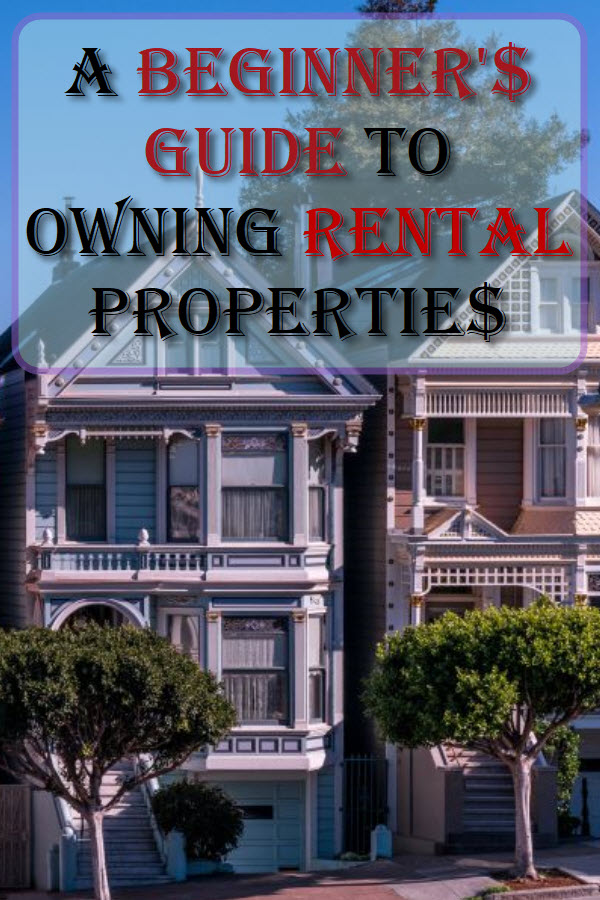
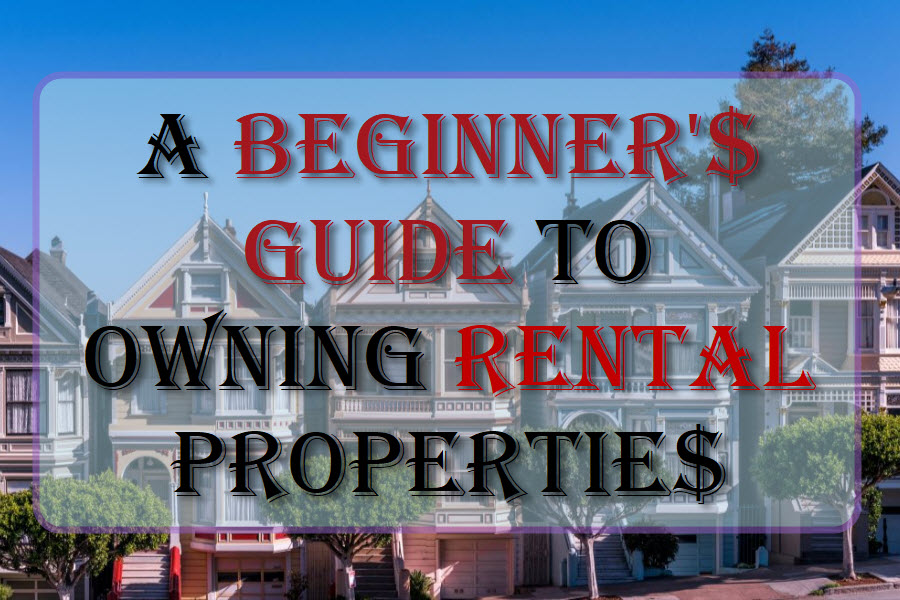
 About Leo
About Leo
My husband and his brother own two rental properties together. They had to evict a tenant once and it was a major hassle for them.
@Robin, evicting a tenant is a nightmare. This is something that I never want to do for any of my investment properties. The best course of action is prevention. Hence spending the time to screen tenants will save you a lot of headache and money in the future.
I can imagine this can be a great experience or an absolutely nightmarish experience, dependent on your tenants. Great tips for those looking to do this.
@Lisa, from my experience with tenants, there’s not guarantee that the tenant will be a decent tenant regardless of how much screening you did. Of all the tenants that I asked if they are clean and everyone tells me that they are very clean and always clean up after themselves. 80% of them lied.
This is a really great guide and I’m going to share it with my sister. They recently purchased a condo on the beach and are using it as a rental property for now but plan to retire there one day.
@Terri, renting out your property now and have tenants pay the mortgage and then you get to live there rent free when you retire is a great idea. I don’t have the same plan for my current properties, but I would like to have the income generated by those properties fund my retirement.
Good article Leo. All of the above , adding in from my experience as follows
Wife & I were slumlords from age 22. We bought a three floor + basement older property in the East end of Toronto 10% down. We cash flowed from day one. We lived on the ground floor & basement. We rented five separate individual rooms on the two upper floors by the week (yes by the week).. They shared common area kitchen & bathroom. It took less than 3 months to become wise landlords. After that it was a piece of cake.
Later on we owned a duplex, then another rooming house that we did not live in. Rather than collecting rent from the individual roomers we had the one tenant (we named him the bossman) as the superintendent. He was to give us one rent for all the rooms in the property collectively. We din’t care what he charged. We set the total rent, if one room was vacant it was his responsibility. He could if he worked it right live rent free. He was responsible for the irritant issues, putting out the trash, clearing the snow. Any minor repairs. The major repairs were not done without or approval that we paid for.
For those wanting to be landlords always always know your landlord tenant act. Read it, study it. Do the formal checks same as you would if you were renting in an apartment building.
If you are not a handy at fixing things person, then you need trades people to do this for you. Have two for each trade that can do this for you.
Don’t skimp on fixtures & fittings. Look at how the bathrooms & kitchens in hotels are equipped (they’re different than those in your own house). Periodic checks of electricals, appliances, plumbing (dripping taps, water heater turn down to half way setting), a control/ lock box on any thermostat. – if you don’t these things will cost you money… you get the idea.
If it’s a condo apartment it’s less hassle than a house. If you are renting out a house or a duplex/multiplex, consider giving one of the tenants an incentive in lower rent to do the minor irritating stuff, cleaning windows, shovelling snow, cutting the grass, putting out the garbage.
Don’t be a hands-off landlord, be nice to your tenants – in return you expect they will always pay the rent on time & if they don’t then it’s the fair warning. Follow the landlord tenant act to the book.
@John, it was pretty brave of you to rent things by the week. I think that it’s too much hassle. The most work that I want to do is once a year. It’ll take too much of my time to rent it out too often. Also, I believe that shorter term tenants tend to be less stable financially.
I was considering renting out my property to one specific individual and let that person manage the property as you noted, but it’s quite difficult to find such an individual and secondly, you’ll have to place quite a bit of trust on that individual. We want control of our property, so we chose to be as hands on as we can.
Your tips are also great for all landlords, especially the landlord tenant act. All landlords need to know this to protect their investment.
My parents are actually looking into purchasing a rental property, so this may come in handy for them. I know they have been weighing their pros and cons lately.
@Jessica, for future landlords, I’ll definitely recommend that they really evaluate the cons of being a landlord. If they are not able to understand or accept the risks, it’ll be very difficult if they encounter a few bad tenants. Eventually, all landlords will encounter one or two along the way.
This is great to keep in mind! I’m not sure if we’ll ever own a rental property or not. I just worry we’ll get horrible tenants and I don’t have the patience.
@Amber, renting to horrible tenants is one of the top reasons why people don’t want to be a landlord. I was a bit discouraged too when I got a decent tenant that turned into a nightmare tenant. I feel fortunate that I was able to end the tenancy and cut my losses. Once I get past the horrible tenants, everything else is not that bad.
These are awesome tips! I know a lot of my friends and family talk a lot about creating multiple streams of income. This is a great post that helps plan exactly how to do that with rental property.
@Brandi, I must admit that I do like the extra income that my properties are generating. It’s great that in some months, you don’t really need to do anything and just collecting rent cheques.
This is such a great article. My husband and I have been looking at renting and buying houses recently and since this would be our first time, we’re kind of out of our minds trying to figure out what is good and what is bad.. What we have to do because we are absolutely clueless. I’m going to refer back to this, when we are ready.
@Tiara, my top recommendations for any potential tenants are to know the local tenancy law for their area, the return of the potential rental property and the cash flow. These are the less flexible factors that affect your investment. Other factors such as maintenance and property management are more flexible if you have and skills to manage the rental property.
I am trying to enter the property market and create my own property portfolio. Unfortunately prices in the UK are extremely high at the moment and there are not a lot of people selling too. Love the advice though!
Ashvin, on UK properties there is another way other than ‘buy to let’. Take a look at low priced areas, buy with minimal down then do a ‘rent/lease to own’ (not a buy to let).
Now since UK mortgages are really low, try to get an interest only mortgage or a tracker mortgage
On a ‘rent (lease) to own’ take the up front fee of a few percent, then do the ”you rent this for a premium’ with an option to own it 3 or 5 years down the road at a fixed price.
The cash flow works at not less than 10% ROI with the lessee during the rent to own period pays all costs including (which is normal in the UK) the property (council) tax
Do a google UK for rent/lease to own properties – can be anywhere in the UK. From my research the North West UK is the best investment
Good luck to you
@John, I am really impressed with you knowledge of the Canadian and UK real estate market being presented. It seemed like you are a very seasoned landlord. Hopefully, the cash is just flowing in for you.
@Ashvin, take your time when it comes to finding the right property to invest in. The rule of thumb is that you should not be afraid to risk the loss of a great property than to over price for a property that may put you in a bad financial situation. Here is a previous post that I had regarding about doing enough due diligent when you purchase your property.
Great advice. Rental property ownership is a great way to build an income stream but it can be landmine too. Will share this with friends who want investments like this.
@Pooja, I definitely agree that investment in rental properties can be very risky is the novice investor had not done enough research to protect his/her investment. Doing your homework and crunching the number is a must when it comes to rental properties investment.
thanks a lot for this entry, it will guide me when when I need it . This is a really great guide and I’m going to share it with my friends..
@Tengkubutang, Thank you for sharing my post. I hope that this guide will serve your friend well. Feel free to ask any questions if there are any.
Thanks for your tips. there’s so much work to do as an owner 🙂
@Rane, depending on the size and age of the property. The larger and older the property, the more work is required to maintain the rental property. On the other hand, for smaller and newer condo units, the work is minimal.
Great article. I can keep it for future reference.
@ivianat, you’re welcome. I hope this post will serve you well in the future.
My husband and I have been wanting ti finally invest in a rental property. This is such a great list of what todo to prepare us.
@Katy, before you start investing, the more research that you do, the more prepared you’ll be when you become a landlord. Know the pros and cons of being a landlord will definitely help set your expectation.
great tips! thanks for sharing!
@Qian, you’re welcome. Thanks for dropping by Qian.
Thanks for the tips. Will print it out for my father coz’ he got few properties .
@Jane, thanks for sharing this with your dad. Hopefully, this post will help strengthen and protect his investments.
This is really good sharing! Lotsa key takeaways and tips worth bookmarking too!
@Sebrinah, Thanks for dropping by. Does this post encourage or discourage you to be a future landlord?
We own a few rental properties so I know from experience that these are great tips. It’s really not easy managing rental properties, sometimes they are more a hassle than it’s worth if you don’t do it right!
@Betty, I sometimes do feel discourage when I had to deal with bad tenants. Those feelings are only temporary. Once the issue is dealt with, everything will get back to normal, and the income will continue to flow once again.
Love your tips. So details. Totally will keep this for my check list reference.
@Cindyrina, I am flatter that this post can serve as a future reference for you. Do feel free to drop me a line or two when you have any questions.
Thank you this is very handy – my mate is on her way to do something like this so I shall send her this post. xx
@Anna, thank you for sharing my post. I hope that this is just some of the tips that you’ve encountered. The more research you are able to do before you invest, the better off you’ll be.
Rental properties can be a lot of work, but also valuable. I definitely admire anyone who wants to do it. I just know that I watched my friends parents do rental properties and I just couldn’t. 🙁
@David, I totally get what you’re saying. Sometimes when you see the horrible experiences that your friends are dealing with, you may want to stay away as far as possible. Based on my experience, I do get a little discouraged from time to time because of the horrible tenants that I need to deal with.
Lengthy read but very detailed tips. I am aspiring to own rental property myself and even though I am in Malaysia, I believe that many of these tips are applicable in my country as well. Thank you for sharing your experiences.
@Emily, I tried to provide as much information as I can. This way, readers can decide which points to take away or not. It’s better to have all the angles covered rather than just skimming through the post.
Just to add, that an income property investment is no different than investing in the stock market. The difference is that as a ‘real estate investor’ ‘RE’ always & I mean always consider it a business not a hobby or part time passive income..
In doing this over investing in the stock market where one is at the mercy of the ‘back room’ or the insiders, its you that has more control over the investment, the income & management of this investment. If you are a poor manager then expect your RE investment not to produce the results.
Be sure that you want to do this, it takes time & effort
From my/our own 48 years of RE investments it has always performed better than any stock market investments.
From a new build to a buy to let/rent it out, multi dwelling properties, fix & flip or the buy it, then lease it out to someone that’s wants to own it …. done right, RE investing is good.
Just make sure that you do your research & homework. It’s not just about financing & cash flow, it’s all of the other things that a landlord needs to be knowledgeable on.
Google landlord websites & forums, the folks on there share a wealth of information
@John, I do agree that rental properties are just another form of investment. The reason that I like it are the challenge to find and manage the property and the control. My success and failure totally depends on my skills and efforts. This is exactly what I want when it comes to my investments. Success or failure on my own terms.
Hey Leo great post. You can tell you put some time into it. Definally some great points and one I’ll be looking at again when we get our first rental property. Cheers
@PassiveCanadianIncome, I see that you have already had three passive incomes built. Rental property can be your fourth. I am always happy to provide a helping hand whenever you want. Just hit me up.
This is a very good guide to having another source of income other than your salary. Once upon a time, i also wanted to invest in real estate to rent out. But the horror stories of bad tenants from other landlords is enough to discourage me. Having said that, they should probably have armed themselves with this set of knowledge so before investing in the world of real estate
A very informative and detailed guide to renting property. I have bought my first home now and hope to purchase more property in the next few years.
Thanks for the great and useful tips, will take note and bookmark this post for reference. Thanks for your sharing 🙂
These are all really great tips and thanks so much for sharing. I am not planning to be a landlord anytime soon but there is some interesting advice there..
I am planning to have rental properties as well someday when the budget permits. It’s a good business to earn a decent amount of cash at the same time helping others trying to find a place they can call home.
Really glad you shared this. My husband and I aren’t quite ready to lease our condo for another year or two but we will eventually. This is great advice!
WOW! such an insightful and thought provoking post. this is sure to help many in there journeys to purchase properties. I found this very informative
Awesome and thorough list Leo!!! I definitely wish that I had done everything that you suggested above as it would have saved me a couple of headaches along the way. I had a couple of tough tenants over the years and they definitely stayed longer than they should have. I think if I knew what I do now that I would have avoided some of those mistakes.
Wow thank your such an extensive guide on owning rental property. It is definitely important to know the ins and out of renting a property because it’s definitely more than just signing and picking up rent.
I think it’s a lovely investment especially since you only need to worry about the maintenance, you don’t have to go there everyday compared to owning a store or a restaurant. It’s really important though that you pick the right location.
This is such a great info!. I always wondering which one is better, monthly rent to people, more hassle or less hassle by do it like a homestay.
There is so much great information in this article. Very interesting to read.
Leo, this is a great topic.
I am myself a landlord and indeed the most bad thing that can happen is to have a bad tenant. Even you are trying to be nice and make it working most of the time you end up having losses. Still, as John R mentioned, the return in real estate can have a better return if you do it right.
Also, I want to bring up a new discussion about paying off your personal mortgage vs rental mortgage. Did anybody using the “Cash dam” method?